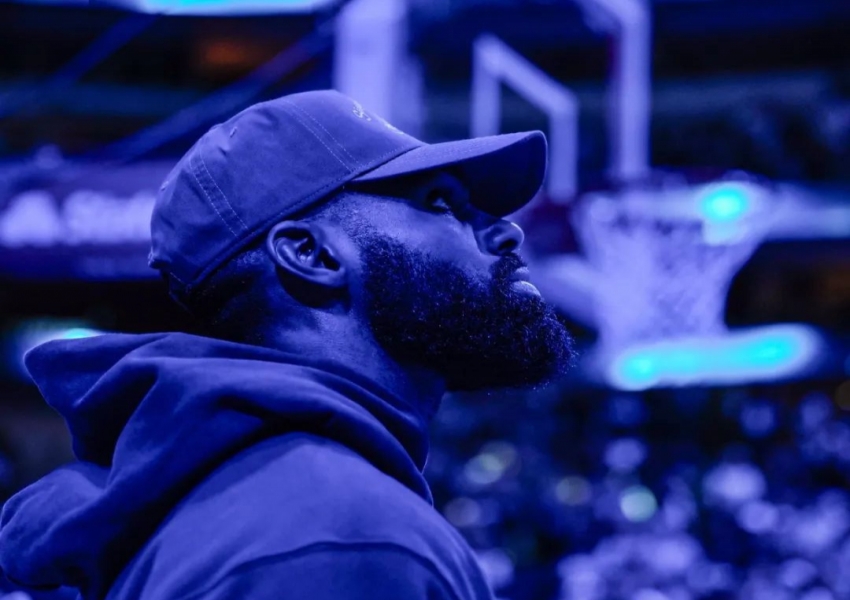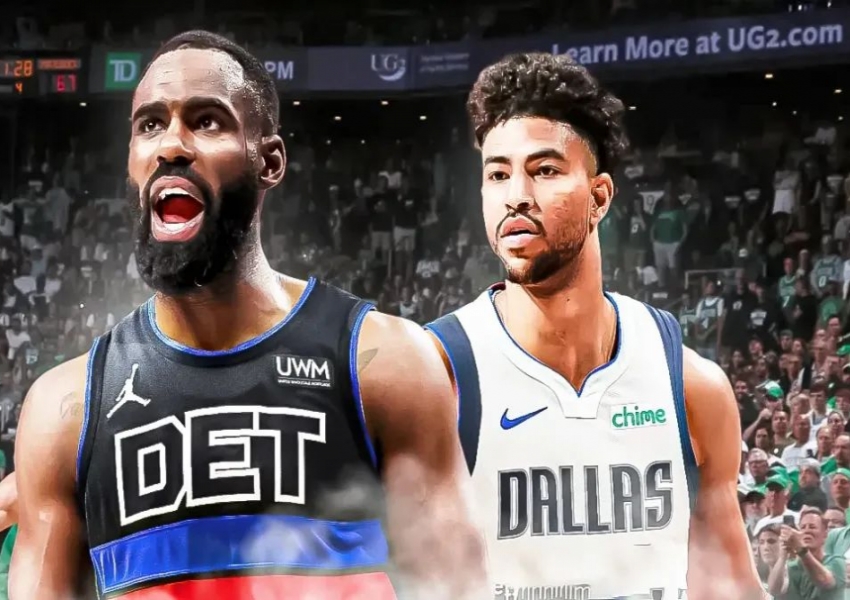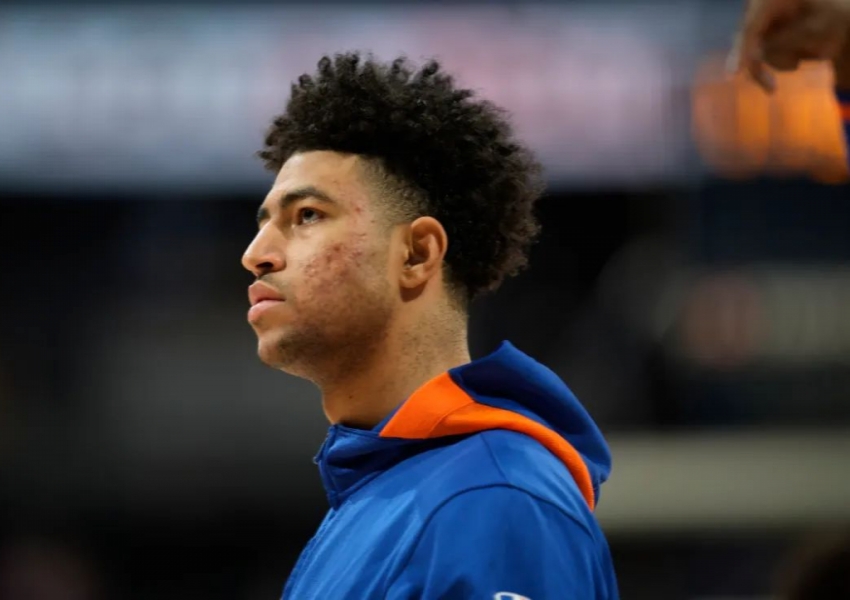The Mavericks' First Big Move of the Summer: A Masterstroke Without Sacrificing a First-Round Pick?
In a late-night bombshell reported by ESPN, the Dallas Mavericks have completed a trade with the Detroit Pistons, sending Tim Hardaway Jr. and three second-round picks (a 2025 second-rounder from the Raptors and two 2028 second-rounders) in exchange for Quentin Grimes. This trade marks the Mavericks' first major move of the summer, sparking significant discussion and analysis within the basketball community.

The Departure of Tim Hardaway Jr.
Tim Hardaway Jr.'s departure from the Mavericks is not surprising, given his performance in the last season. During the regular season, Hardaway was the third-highest scorer for the Mavericks, averaging 14.4 points per game. His three-point shooting was decent, with 2.7 threes per game, ranking 25th in the league, and a shooting percentage of 35.2%. However, his postseason performance was a different story.

In the playoffs, the Mavericks played 22 games, but Hardaway only appeared in 14 of them. His playing time dropped drastically to an average of 12.7 minutes per game, compared to 26.8 minutes in the regular season. He managed just 4.4 points, 1.8 rebounds, and 0.4 assists per game, with shooting splits of 37.9% from the field, 35.1% from three, and 50.0% from the free-throw line, resulting in a true shooting percentage of 49.6%. In the Western Conference Finals and NBA Finals, he was a non-factor, with four DNPs (Did Not Play) and negligible contributions in the games he did play, except for a garbage-time performance in Game 4 of the Finals where he hit five threes.

Given his playoff struggles, it became apparent that the Mavericks needed to move on from Hardaway. At the season-end press conference, Mavericks GM Nico Harrison indicated that the team didn't need to change its top seven or eight players in terms of playing time—Hardaway was the ninth. His father, Tim Hardaway Sr., even acknowledged the likelihood of a trade, expressing hope for new opportunities.
Financially, this was the ideal time to trade Hardaway. He signed a descending four-year, $75 million contract in 2021, and he is entering the final year with a salary of $16.19 million. This contract structure made him a more attractive trade asset.
The Arrival of Quentin Grimes
Quentin Grimes, often remembered for his time with the New York Knicks, arrives in Dallas with significant potential. Drafted 25th overall by the Knicks in the 2021 NBA Draft, Grimes was once considered a key part of their future. In his sophomore season (2022-23), he averaged 30 minutes per game, posting 11.3 points, 3.2 rebounds, and 2.1 assists, with a three-point shooting percentage of 38.6%. He was particularly effective from the corners, shooting 48.5% from the left corner and 37.5% from the right.
However, with the arrival of Donte DiVincenzo, Grimes' role diminished significantly last season. His playing time dropped by nearly 10 minutes per game, and his stats fell to 7.3 points, 2.0 rebounds, and 1.2 assists per game, though he maintained a respectable 36.3% from three. Before the trade deadline, the Knicks sent Grimes, Evan Fournier, Malachi Flynn, and two second-round picks to the Pistons in exchange for Bojan Bogdanović and Alec Burks.
Unfortunately, Grimes did not find much success in Detroit, playing only six games and averaging 5.3 points, 2.0 rebounds, and 2.3 assists per game, with a poor three-point shooting percentage of 14.3%. The small sample size makes it difficult to draw definitive conclusions, but the Pistons saw value in acquiring three second-round picks and freeing up cap space.
The Mavericks' Perspective
From the Mavericks' viewpoint, this trade serves multiple purposes. First, it allows them to move on from Hardaway, whose playoff struggles made him a candidate for departure. Second, it adds Grimes, a 24-year-old with the potential to be a valuable 3-and-D player if he can recapture his form from his second year in the league. If Grimes can deliver his sophomore year corner-three shooting in Dallas, the Mavericks will have struck gold.
Additionally, this trade frees up cap space for the Mavericks to potentially re-sign Derrick Jones Jr. Jones became a free agent after playing one season with Dallas. Due to salary cap constraints, the Mavericks were limited in how much they could offer Jones. By trading Hardaway, they now have the flexibility to offer a substantial portion of the $12.9 million mid-level exception to Jones, increasing the likelihood of retaining him.
This series of strategic moves reflects well on the Mavericks' front office. Despite being criticized for losing Jalen Brunson two years ago, the Mavericks have made several shrewd decisions since then, including acquiring Kyrie Irving, P.J. Washington, Daniel Gafford, drafting Dereck Lively II, and signing Jones. These moves contributed to the Mavericks reaching the NBA Finals this year.
While the Hardaway-for-Grimes trade may not be transformative, it is another savvy move in the Mavericks' offseason. They still face challenges, such as acquiring a reliable third option on the wing. However, given the front office's track record over the past two years, there is reason to believe they might have more surprises in store this offseason.
The Broader Implications
This trade also highlights broader trends in the NBA. Teams are increasingly valuing flexibility and potential over established but inconsistent players. The Mavericks' willingness to trade Hardaway despite his scoring ability underscores a shift towards valuing playoff performance and consistency over regular-season stats.
Furthermore, the inclusion of second-round picks in trades is becoming a common strategy. Teams recognize the value of accumulating draft capital, whether for selecting new talent or facilitating future trades. The Pistons' acceptance of three second-rounders for Grimes is a testament to this trend.
For the Mavericks, the trade also underscores the importance of cap management. By shedding Hardaway's contract, they position themselves to make strategic signings, such as re-signing Jones, which could be crucial for their depth and overall success.
Looking Ahead
As the NBA offseason progresses, the Mavericks' trade for Quentin Grimes is a promising start. It addresses immediate needs while also positioning the team for future flexibility. While Grimes alone may not elevate the Mavericks to a championship level, his addition, coupled with the potential re-signing of Jones and other strategic moves, could significantly strengthen the team.
The Mavericks' front office has shown a keen ability to navigate complex decisions and maximize their assets. Fans and analysts alike will be watching closely to see what other moves they make before the season begins. Given their recent track record, there is reason for optimism in Dallas.
In conclusion, the Mavericks' trade for Quentin Grimes without giving up a first-round pick is a testament to their strategic planning and forward-thinking approach. It reflects the changing dynamics of the NBA, where potential, flexibility, and cap management are increasingly prioritized. As the Mavericks continue to build their roster, this trade may well be remembered as another masterstroke in their quest for sustained success.
Copyright Statement:
Author: focusnba
Source: FocusNBA
The copyright of this article belongs to the author. Reproduction is not allowed without permission.
Recommended Blog
- End of the Road! The Worst-Case Scenario Unfolds: What Happened to China's Women's Basketball Team?
- End of the Road! The Worst-Case Scenario Unfolds: What Happened to China's Women's Basketball Team?
- Impressive Performance! Averaging 20+2+8! What Makes 1.72-meter Yuki Kawamura So Strong?
- China Men's Basketball Announces 20-Man Training Squad! Is Lin Wei Being Blacklisted? The Nation's Top Shooting Guard Left Out...
- Trail Blazers Announce! Cui Yongxi Ready for the NBA Again! China's Top Forward Shows His Talent...
- Plus-Minus +30! 5 Steals and 2 Blocks! Leaving Jaylen Brown Behind Was the Right Call!
- Sudden Retirement! At 34, Gordon Hayward Prioritizes Life Over Basketball
- Scoring Big: Zhang Yuqi's New Boyfriend is CBA's 6th Pick Liu Ziqi
- NBA Update: Lauri Markkanen Makes Decision Regarding Warriors Trade! The Last Big Offseason Deal
- $175 Million Over Five Years! Changing Times in the NBA as Quickley Secures a Massive Contract